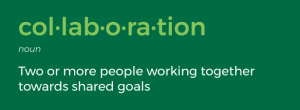Will artificial intelligence (AI) make people like me extinct?
By “people like me,” I mean editors. Those of us who make our living editing the work of authors and other writers. Copy, line, and developmental editors. I provide all three types of editing through my company, GdS Editorial Services.
Many of my professional peers seem to think it might. Or that it is already making us an endangered species.
Among members of professional organizations like the Editorial Freelancers Association (I’m a longtime member), the fear and anxiety are real. Veteran and newbie editors complain that jobs are drying up and that potential clients prefer to use artificial intelligence tools rather than pay for editing. I’ve seen editors and proofreaders on various social media platforms, including Facebook editors’ groups, express the same anxieties.
Are their concerns justified, or are they overreacting?
Before we can answer that, it’s necessary to explain what artificial intelligence is and isn’t.
PerfectIt, Microsoft Word macros, and Grammarly are all forms of artificial intelligence. They are useful to editors because they help us find errors and make a piece of writing precise and stylistically consistent. Google Docs integrates AI-based features to improve user experience. These AI programs have been around a lot longer than ChatGPT.
But when most people think of AI writing tools, it’s something like ChatGPT and not those older programs. Digital tools like ChatGPT are computer programs designed to mimic human writing. But no AI program can do what a human editor can. In fact, the limitations of AI mean that it is unlikely to ever replace editors (or proofreaders).
For one thing, editing is a specialized skill that requires training and experience. Plus, a lot of practice, judgment, and technical expertise. Mastery of grammar and syntax are essential. But editing is more than proficiency in the mechanics of writing.
Editors ensure a piece of writing is cohesive, makes sense, and presents its arguments or themes logically. They also look for things like bias and tendentiousness, possible liability issues, and permissions. You can query AI about these concerns and issues, but it isn’t yet capable of addressing all of them.
A major limitation of AI is that it cannot preserve a writer’s unique voice; that’s something only an editor can do. AI can try to mimic a writer’s or brand’s style but cannot make editorial decisions to maintain it. When editors work on a client’s book, article, essay, novel, short story, or blog post, we ensure that whatever changes we make enhance the work and read as if the writer wrote it. Sometimes, a writer’s voice will be inconsistent, awkward, or unclear. An editor familiar with a writer’s style will know when something feels “off.” No AI program can do that.
Editing entails a relationship between editors and writers. Writers expect their work to be treated with care and respect. That means there needs to be trust between both parties. AI tools cannot make that kind of personal connection; they cannot offer empathy, respect, support, or encouragement. Those qualities are crucial to any editor-writer relationship, especially when the material is fiction, poetry, personal essays, or it addresses potentially sensitive cultural, social, or political themes.
Two other important functions are beyond the capacity of AI: making editorial decisions and performing all necessary editorial tasks.
When writers write, they have a readership or readerships in mind. AI cannot tell if wording or topics might be inappropriate for the intended audience. But an editor can catch and fix such issues.
As I mentioned, writing programs like Microsoft and Grammarly are useful in correcting grammatical errors. But they are not infallible in correcting and refining writing. Editors don’t only work on the mechanics of writing; they shape the overall quality of a story or article. AI cannot give the same attention to authorial voice and readability as a human editor. Grammarly, for example, cannot pick up on nuances of style, especially in fiction, poetry, or other forms of creative writing. If you write dialogue in colloquial speech or non-standard English, it will suggest changes or “corrections” that are not consistent with how you want your dialogue to read.
Moreover, AI makes mistakes. In using Grammarly, I’ve often found that the algorithm’s suggested corrections introduce errors and change the sense of what I’m writing. Grammarly and other AI programs are only as good as the data they’re built on, and that information might not be current or relevant to the writing being edited. And AI programs cannot fact-check themselves. Only a living, breathing editor or proofreader can check for factual inaccuracies.
Although AI can be useful for minor editing tasks and drafting text, it’s not suited for higher-level editing that requires critical thinking, like line and developmental editing.
AI technology has spread rapidly and will continue to do so, whether we editors and proofreaders like it or not. There’s a strong economic incentive for publishers to use it: it’s much less expensive than hiring human editors and proofreaders. Faster and cheaper —those are advantages of AI that capitalism prizes.
So, to get back to the question I posed at the beginning of this post, will AI make us editors an extinct, or endangered species?
Robin D.G. Kelley, a distinguished historian and author, praised the Boston Review, a publication he writes for, because he knows his work “will always be edited with rigor and care—a miracle in an age when editing has all but disappeared.”
“To be edited with rigor and care” shouldn’t be a “miracle.” It should be standard practice in publishing.
Kelley’s comment about editing having nearly disappeared is sobering but perhaps overstated. AI, at least in its current incarnations, cannot perform the miracle of rigorous and careful editing.
That’s why people like me are unlikely to become extinct anytime soon.





